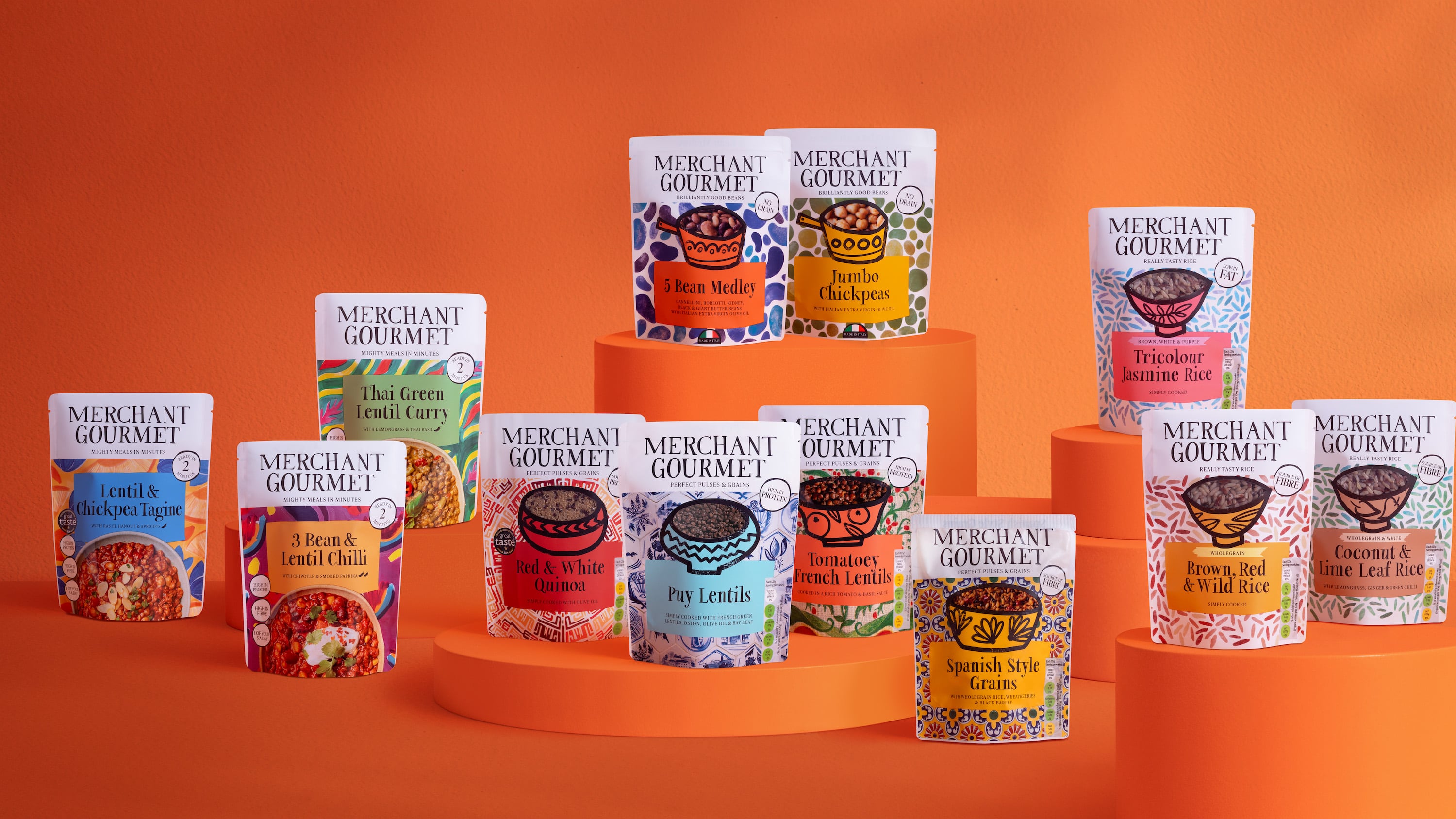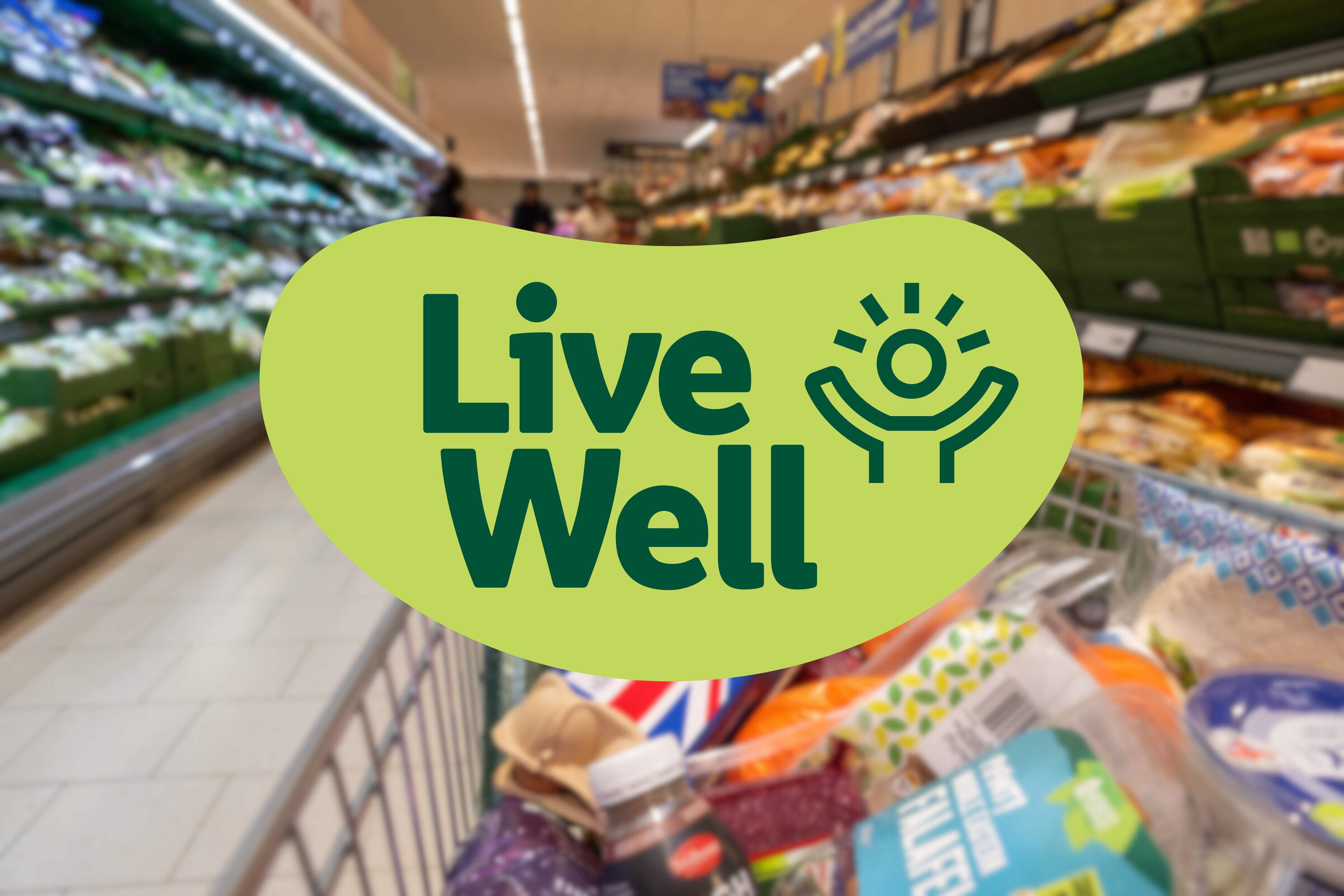Company address: Gosh! Food, Europa Business Park, Maidstone Road, Kingston, Milton Keynes, MK10 0BD
Number of employees: 100
Size of site: Approximately 5,500 square metres
Shift patterns: 24/5
Types of lines: Travelling ovens, multi-head weighing systems attached to gas flushed tray sealers or VFFS
Output: 250,000 to 350,000 units per week
Based out of a rather inconspicuous industrial estate on the edge of Milton Keynes, Gosh! Food is making something of a name for itself within the plant-based food space.
The firm’s range of plant-based and free-from products don’t attempt to imitate meat, but instead lean into the flavours and textures of 100% natural ingredients.
Its range of falafels, burgers, sausages and bites are now stocked by major grocery retailers including Tesco, Sainsbury’s, Lidl, Morrisons and Asda, among others.
Glen Brittin joined Gosh! in November 2023 as head of technical, a role he has held at firms all over the world during his 37 years in the food and drink industry.
At the time of Food Manufacture’s visit to the Gosh! site (which comprises of two units located next to one another) Brittin has just taken on full responsibility for managing the engineering team, a task that sits alongside his wider remit relating to food safety, quality and product integrity. He also sits on the senior leadership team alongside the firm’s managing director and other department heads within the business.
“GOSH! has been around for about 20 years in various guises,” Brittin explained.
“It was initially founded as Great Food, but rebranded as Gosh! Food in 2016 based on some market research where people were shocked that veggies could taste so good.”
The firm is owned by Portuguese multinational Sonae and sits within its Sparkfood division alongside brands including lab-grown fish manufacturer Bluu Seafood and plant-based specialist La Vie.
“Gosh! was initially targeted at delis and farm shops, before securing its first mainstream retail listing with Tesco,” Brittin said.
“But since I joined 18 months ago, there has been a focused drive to secure wider distribution and more listings with major retailers to get more people tasting our delicious products. This has been a real success and we have become the number one falafel and bites brand.”
Winning at plant-based
The success of Gosh! has come at a time when other plant-based food brands have seen profits fall and some have even entered administration. However, Brittin believes the market has reached a healthier equilibrium after the initial hype that will set up the firms which have survived and thrived for long-term success.
“It’s quite normal that after a period of rapid growth, newer markets will consolidate,” he argued.
“In a market that is declining in some areas, Gosh! achieved double digit growth last year.”
Asked why the brand has been able to buck this trend, Brittin added: “Some plant-based and vegan products can appear to have an entire chemistry set of ingredients, which puts people off.
“Our products contain no additives and preservatives, are completely free from allergens and are made with ingredients you could find in your cupboard at home or on supermarket shelves. This is our real point of difference.”
Beyond its focus on natural ingredients and additive-free products, Brittin explained that the flavour profiles it has adopted have been a real hit with consumers.
“Our falafels come in a range of flavours including Moroccan, Mediterranean or classic, and this variety really catches the growing desire for exploring cuisines from around the world,” he said.
In order to appeal to new customers, Gosh! has experimented a lot with innovation and continues to introduce NPD onto the market. However, this is based on careful calculations by Brittin and the team, who are aware of the trade-offs associated with expanding product ranges.
“There is a real balance to strike with innovation, because you don’t want to add too much complexity to your processes within the factory, as this can reduce operating efficiency,” he said.
“When we talk about innovation, we first think about our core customers and then move onto non-customers. This process includes a lot of insights work, which considers all sorts of factors beyond taste such as pack size and branding.
“But my approach is not to commit to NPD for the sake of it, it must serve a clear purpose.”
The fact that all Gosh! products come with a free-from claim has also helped the brand appeal to consumers that suffer from allergies. However, maintaining a factory that is allergen free requires a concerted effort.
“In a globalised supply chain, managing allergens is a real challenge,” Brittin said.
“Testing is never 100% accurate because it is always based on a sample of the product – you cannot test every single falafel we produce. For us, it has been essential to work very closely with suppliers to understand the origins of the ingredients we use and to build trust.
“The best way to avoid allergen contamination is to not bring allergens onto the site.”
The pursuit of efficiency
Gosh! currently runs a small operation that functions efficiently under Brittin’s leadership. However, as the business grows and new costs are added he is aware that continual improvements to the firm’s operations are necessary.
“Since the changes to national insurance contributions, every person we employ is costing us more,” Brittin explained.
“Therefore, we have to make sure that we are as efficient as possible and this is a real drive on the operations side of the business at the moment.”
In order to improve productivity, Gosh! has invested in a number of new tools that enable it to monitor downtime and respond in real-time to issues that are slowing production.
“We use a manufacturing recording system called OFS, which allows us to count every single falafel throughout the entire manufacturing process,” Brittin continued.
“The system is calibrated against a base standard of overall equipment effectiveness and can create targets for us to hit, which drives efficiency.”
Access to this data allows Brittin to analyse which machinery is causing the most downtime, before looking at solutions. This was a major focus for the team during the first half of 2025 and the results so far have been positive.
“Of course, when you improve one area of your operation new issues will always appear, but I am encouraged by the early returns,” he said.
“The OFS technology was being used when I arrived, but the way we have implemented it over the past year is really different and we now rely on it. Data is so important for monitoring performance and it is something I really emphasise to the team.”
The focus on efficiency and improvement goes beyond the manufacturing floor at Gosh! and into the senior leadership team, which Brittin describes as an environment of “high challenge and high support”.
“You have to leave your departmental hat at the door and understand that you have to do what is best for the business,” he explained.
“I am very pleased as head of technical that my agenda is never pushed to the side, and that comes from the top. I have been in businesses before where finances take precedence, but that isn’t the case at Gosh! at all.”
Such a culture has left the firm well-placed to succeed moving forward, regardless of the broader challenges facing both the plant-based category and the wider economy.
“I know everyone says this, but it is an exciting time,” Brittin said.
“The category has consolidated and I believe that plant-based will find its rightful place in the broader food ecosystem, and our style of products will play a central role in this process.”





